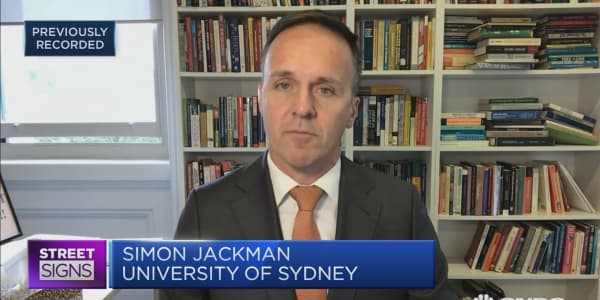In the runup to the election, President-elect Donald Trump falsely accused Google of manipulating search results to favor Democratic presidential candidate Hillary Clinton, demonstrating how little he understands the company's technology and business, said Wall Street analysts.
"We will have a president who does not understand tech, does not understand how these companies work and through a single Tweet could destroy market value," said RBC Capital Markets analyst Amit Daryanani.
Piper Jaffray analyst Gene Munster in a note to investors on Nov. 17 wrote that Trump's suggestion that Google could rig the election doesn't take into account how Google's search algorithms self-regulate, filter results and suggest queries.
Nothing has changed about Google parent Alphabet's fundamental business post-election, but investors reacted by dumping tech stocks and investing in sectors Trump seems to favor, said analysts.
"The Trump administration seems to be more pro-industrials, pro-building, pro-manufacturing and significantly less favored towards technology," said Daryanani.
Alphabet's stock has rallied the past week after a postelection slump. The stock closed at $785 per share on Tuesday and is trading roughly flat year to date. The shares were down 1 percent midafternoon Thursday at around $777.
The vast majority of analysts who cover the stock — 93 percent — recommend buying it, according to Factset and none changed their position since the election.
Unlike Apple, which is headed for a clash with Trump, and Amazon, which the president-elect threatened with "such problems," Google has largely avoided being singled out. "That's not to say Trump won't go after Google at some point," said Daryanani.
Google has 75 percent of the global desktop search engine market, according to Netmarketshare.
Here are some areas where the next administration might effect Alphabet, according to analysts.
Immigration for high-skilled workers
Trump has said he will clamp down on immigration, raising concerns that he will neglect to increase the number of H-1B visas for high-skilled workers, a top priority for tech companies. Trump does not mention H-1B visas in his immigration policy. The government currently caps the number of H-1B visas issued each year at 65,000.
Immigration reform is desperately needed to enable tech companies to hire the world's top engineers and remain competitive, Alphabet Chairman Eric Schmidt said at a conference Nov. 10.
Google is among the top employers of the H-1B temporary visa program and many of the company's U.S. employees are immigrants, including CEO Sundar Pichai and Alphabet co-founder Sergey Brin. Trump's pick for chief strategist Steve Bannon said there are too many Asian CEOs in Silicon Valley in an interview last year.
Regardless, the 65,000 cap on H-1B visas is mandated by Congress, high-skilled immigration reform is not clearly divided along party lines and Trump's website makes no mention of H-1B visas.

Revolving door and regulation
Google has spent $11.85 million in lobbying efforts so far this year, according to the Center for Responsive Politics. The company enjoyed unusually close ties with the Obama administration, according to watchdog group Google Transparency Project. Obama named former Googler Megan Smith as the U.S. chief technology officer in 2014.
"The Obama administration was very tech friendly and tech savvy," said Daryanani.
Trump has expressed his disdain for over-regulation which suggests he could be more friendly to mergers and acquisitions, though he has flip-flopped on the issue. That said, the Federal Communications Commission is also expected to overturn some Obama administration policies that seemed to favor Google in fights with telecoms and cable companies, Reuters reported.
The president-elect named Republicans Jeff Eisenach and Mark Jamison to oversee his telecom policy at the FCC, which is expected to reject Chairman Tom Wheeler's plans to open up the $20 billion market for rented pay-TV set-top boxes, according to Reuters sources. Cable companies opposed the measure, which would allow competition from companies like Google.
Under a Trump administration, Obama's net neutrality rules — which require internet service providers to treat all data equally and were championed by internet companies — may be rolled back, analysts speculated. Both Eisenach and Jamison and most Republicans oppose the rules.
Google is facing an antitrust investigation from the European Union. It is unclear how Trump's protectionist proposals, if enacted, could alter sentiment toward U.S. companies and play into the investigation, analysts said.
Given Google's European antitrust issues and the potential for new U.S. Federal Trade Commission antitrust regulations, Trump could get more aggressive in terms of going after large companies like Google, said Daryanani.
Trade and tax
It is uncertain how Trump's proposed trade policies could impact Alphabet, said Wedbush analyst James Dix. Trump has said he will raise tariffs on trade and has called on U.S. companies to bring jobs back from abroad. Google and Google-powered devices are made overseas including in China and most of Alphabet's revenue comes from overseas.
There is nothing in Trump's tax plan that would hurt Alphabet. In fact, the company stands to benefit.
The business tax rate would be reduced from 35 percent to 15 percent, which would bump up Alphabet's net income. Also, Trump has said that he will offer a one-time tax repatriation holiday to allow U.S. companies to bring back overseas profits at a 10 percent tax rate instead of 35 percent under the current law. Alphabet holds $49.7 billion outside the U.S.
"We believe, given Google's low levels of debt, this would be deployed via increased share buybacks, consistent with what investors want," wrote Munster.
Privacy and security
In an open letter issued by the Internet Association on Nov. 14, Google and other internet companies called on Trump to protect encryption and curb surveillance during his presidency. Trump does not specifically mention encryption or government surveillance programs on his website, which promises an immediate review of all U.S. cyberdefenses and vulnerabilities.
That said, when Apple refused to comply with a court order to de-crypt a terrorist's iPhone for the FBI earlier this year, Trump called for a consumer boycott. Trump's pick for attorney general, Jeff Sessions, at the time argued that government must have access to the phone, saying it was "a more serious issue than Tim Cook understands."
If Trump continues to weigh on Alphabet's stock, it's a rare opportunity to buy, said analysts.
"The tech industry is in more control of its own destiny than Donald Trump and will work past these issues, partially offsetting this temporary headwind," wrote Munster.
Alphabet declined to comment for this story.
A spokesperson for Trump did not immediately respond to a request for comment.
— With reporting from CNBC's Anita Balakrishnan and Ari Levy.





